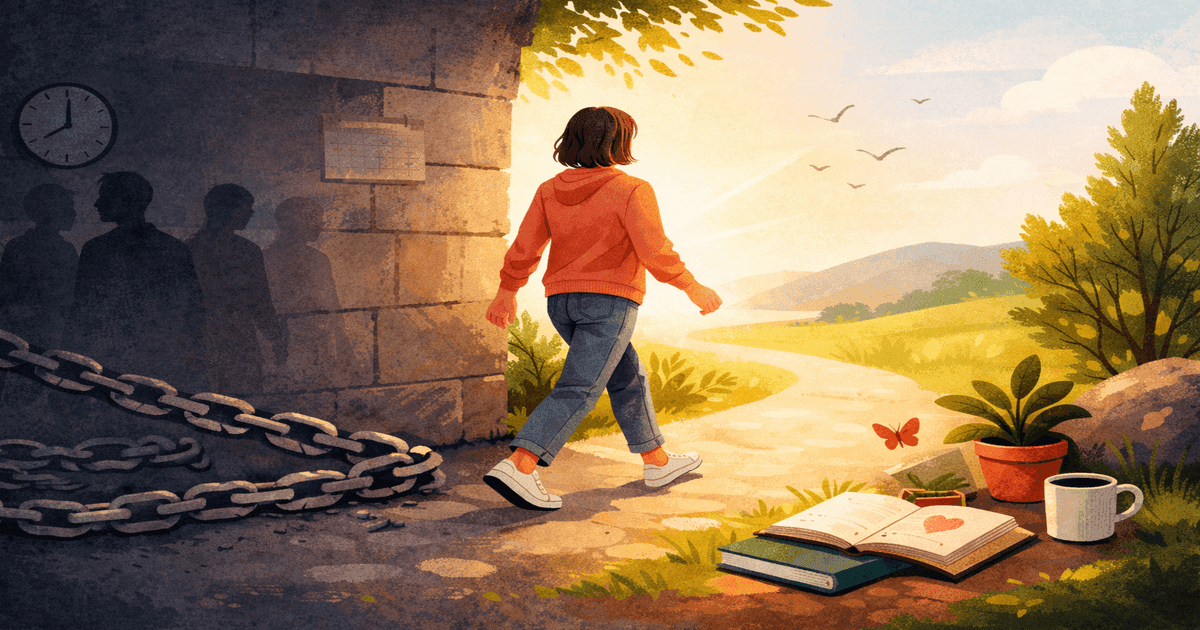World Sleep Day, World Mental Health Day, World Suicide Prevention Day, National Stress Awareness Day, and other similar observances are not just about marking a date on the calendar or for fun. These days exist to raise awareness, provide support, and create spaces for conversations that often go unspoken. In this article, we look at how grief extends beyond death and how you can cope with it.
National Grief Awareness Day
There is a story behind National Grief Awareness Day, which is observed annually on August 30. It was created by Angie Cartwright in 2014, after she experienced the loss of her baby sister, husband, and mother. This led her to launch the observance to change grief culture, promoting open support for anyone experiencing loss.
National Grief Awareness Day validates all forms of loss and reminds us that grief is not limited to death. Life has taken one or two things from almost every person at some point, and how we feel about these losses is valid. People mourn over the loss of relationships, jobs, properties, or even life transitions. How people feel should not be belittled or dismissed as unnecessary, as everyone has the right to feel their grief in their own way. We grieve different things differently.
National Grief Awareness Day is dedicated to raising awareness, normalizing grief, supporting mourners, and dismantling stigma around grief. It calls attention to how grief affects individuals emotionally, mentally, and physically, while promoting patience and self-compassion. The public is encouraged to create safe spaces where people can share their grief openly, without judgment, and receive sincere compassion in return.
Grief from Losing a Loved One
Losing someone is an experience that brings a whirlwind of emotions such as anger, sadness, guilt, and shock. Its effects on both emotional and physical well-being can be quite detrimental.
Our approaches to managing grief vary, as do the nature of our losses and the individuality of our journeys. While we may attempt to offer universal advice on coping with grief, we recognize that each person's experience is profoundly personal.
If you have ever lost a loved one, you can read our detailed article on how to cope with loss and grief without losing yourself or following a rigid societal template. There are stories of people navigating their grief journeys, including guidance on how to move forward without guilt.

Grief in Other Forms
Grief over non-death losses can feel just as intense, and sometimes more confusing, because society often does not acknowledge it. People may feel unheard, misunderstood, or dismissed. Just like anxiety, depression, OCD, paranoia, ADHD, or physical pain are real, the emotional pain of non-death losses is also real and deserves compassion, time, and support. Examples include:
- Loss of a loved one
- End of a relationship or friendship
- Fallouts with family
- Identity shifts
- Life transitions, such as moving to a new home
- Loss of a job you were attached to
How to Cope with Grief Beyond Death
Grief has often been attributed only to death, so people rarely share how the loss of other things can hurt just as much. If your grief isn’t about the death of a loved one, these practical strategies can help:
1. Validate your feelings
The first step is acknowledging and accepting what you feel. Name it specifically, you cannot heal from what you do not recognize or validate.
Grief over non-death losses can trigger anxiety or depression. Therapy can help you deal with complex emotions, so consider reaching out to a counselor, psychologist, or support group, especially if grief is interfering with your daily life.”
3. Take your time to heal
While engaging in intentional efforts such as journaling, self-care, mindfulness, and hobbies you enjoy, do not force a timeline on your healing. Healing is a process; it may take longer or shorter than you imagined.
4. Allow people to be there for you
Just as it is normal for a grieving person to be surrounded by friends and family when mourning a loved one, it is also okay to share your non-death loss journey so others can care for you. Sharing grief can release emotional weight and help you see things in a new light.
5. Create your own ritual
Some people design personal rituals to process their grief. For example, if you are attached to a home you are leaving, you could create a routine that honors your memories while settling into the new space.
How to Promote National Grief Awareness Day
- Share this article on social media or with someone who might benefit from it. Many people are not aware that a day exists to recognize grief, or that grief goes beyond death.
- Reach out to someone you know is grieving. Send a kind message, call them, or take them outdoors if they are open to it.
- Consider gifting a therapy session with a licensed professional to someone in need.
Conclusion
This year, on August 30, we observe National Grief Awareness Day,a day that reminds us that grief touches everyone, in many forms, and at any stage of life. It’s a moment to pause, reflect, and acknowledge not only the loss of loved ones but also the personal losses that shape our lives. Whether it’s the end of a relationship, a career change, or a major life transition, this day encourages open conversations, compassion, and support. Take a moment today to reach out to someone grieving, share your story, or practice self-care as you honor your own journey through loss.



